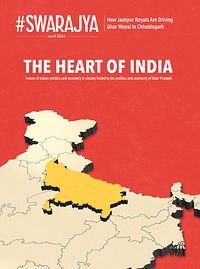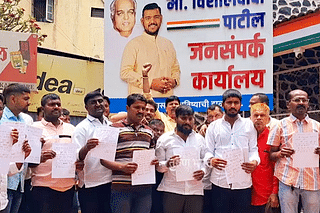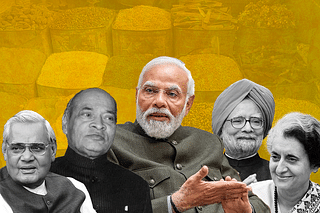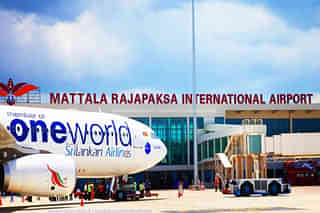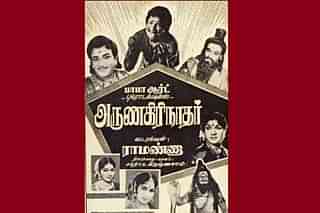News Brief
Outrage Over IPS Officer Seeking Ban On NGOs’ Foreign Funding: CPM’s Prakash Karat Had Proposed The Same In 1984
Yaajnaseni
Jan 30, 2020, 02:12 PM | Updated 02:12 PM IST
Save & read from anywhere!
Bookmark stories for easy access on any device or the Swarajya app.
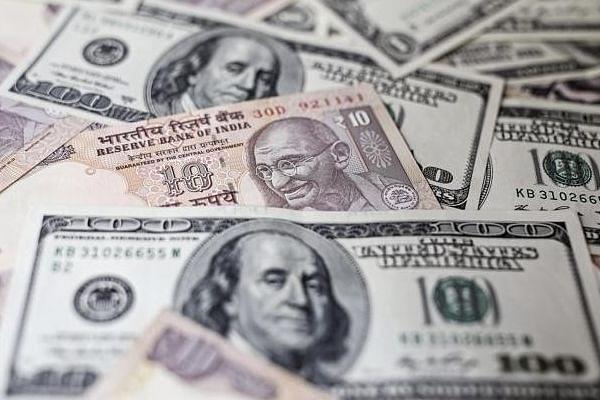
Recently, M Nageswara Rao, a serving IPS officer and former interim CBI director, wrote an article ‘The Dangers of Foreign Funding’ published in Organiser.
Rao looks at the data regarding the foreign funding of NGOs:
“The data make it evident that notwithstanding the political colour of the Central Government..the quantum of FCRA funds has been on relentless rise.
A humongous amount of Rs. 2,08,096 crore of foreign ‘donation’ has been pumped into the country, in the last two decades, by foreign sources through official open channels by remitting to FCRA-NGOs.
A further analysis of the FCRA data indicates that as on 1 April 2017 the total amount brought forward by the FCRA-NGOs as unspent money from past foreign ‘donations’ is a whopping Rs 15,907 crore, more than 50 per cent of which is lying with about 2 per cent of the FCRA-NGOs.
Interestingly, foreign donors continue to remit fresh funds every year to the same small group of entities. Why do foreign ‘donors’ continue to pour in big bucks to the entities that are already sitting on a staggering pile of cash?”
Rao’s article generated some backlash.
For one, he was accused of superseding service rules to contribute an article for the RSS mouthpiece Organiser.
There is no blanket ban on the serving officers to express their opinions via newspaper articles. Whether he broke the rules or not is a legal matter and due process should take its course.
Second, it was indicated that Rao harboured a Hindutva agenda.
The NGOs “fall from grace”
The truth is that the criticism of NGOs goes long back, and is much more broad-based that the concerns of Hindutva. There are serious issues associated with foreign-funded NGOs, raised from time to time by sections spread across the ideological spectrum.
The “fall from grace” of NGOs is recorded by several academicians at least since the 1980s.
Unlike the previous grassroots Gandhian organisations driven by motivated activists, the NGOs became bureaucratised and started hiring management graduates to carry on their work like a corporation.
The scholars started drawing clear lines between an NGO and a community-based or grassroots organisation. The NGOs were now professional enterprise that acted as a financial-intermediary, and brokered the deals between the foreign funding sources and the groups in India.
In 1980s, the existing social workers in India like Bunker Roy were troubled by the emergence of these “less altruistic” operators on the scene, and even sought government control over the foreign funded NGOs.
Roy recommended that legislation be created that would apply a "code of conduct" for non-governmental organisations. He also proposed a national council to recommend "legitimate" organisations to the government and monitor their activities.
Prakash Karat on foreign funded NGOs
In 1984, Prakash Karat penned an article titled ‘Action Groups/Voluntary Organisations: A Factor in Imperialist Strategy’ which was later published in the CPI(M) journal The Marxist.
Karat expressed the same concern over the scale of the foreign funding of NGOs as Rao.
“The scale of funding and the vast involved are so striking that it is surprising that this has not become a matter of urgent public debate”
Karat termed the foreign funding as outside interference in the Indian politics and a “grave threat to our country’s integrity and sovereignty”.
“Foreign money is being used to prepare an ‘intervention’ in Indian politics.. The question of the content of the intervention aside, why is the political action subsidised by foreign money?”
He also argued that the money was coming as a part of the agenda of the Western capitalist countries channelled in disguise of charity to NGOs in India.
“Some of these agencies in Western Europe have the support of their respective governments others are purely church-sponsored. There are similar bodies in the USA Australia and Canada also, many of the whom are also private foundations”.
Karat also lists the CARITAS (Catholic apex body), CASA (Protestant apex body) and Lutheran World Relief among the nine prominent funding agencies.
Karat clearly said that “..Christian radicals, if they are to play to relevant role in the Indian democratic movement” should make a clean break from the past practice of receiving foreign funds.
Karat also warned the Left cadre to not be confused by the "left posture” and the “sophisticated pseudo-radical jargon” of the foreign funded NGOs.
He criticises the “new left groups” for being foreign funded. “ It is almost as if the West German “Bread for the World” were financing efforts to develop a new revolutionary movement in India!” he says.
Karat, in his 1984 piece, also criticised the Indira Gandhi government for a weak FCRA that had opened the floodgates of foreign money for the NGOs.
He proposed to strengthen FCRA in such a way that ‘all voluntary organisations which claim to organise people from whatever form of political activity should be included in the list of organisation, just as political parties, which are barred from receiving foreign funds’.
“All those organisations receiving foreign funds are automatically suspect and must be screened to clear their bona fides,” he writes.
He also said that under FCRA the government “divulged only information in tit-bits which are only the tip of the iceberg. But even this..reveals a disturbing picture of imperialist penetration”.
This was a time when Left-leaning scholars also criticised the divisive implications of NGOs propagating the notion of “primacy of identity” like gender, ethnicity, caste etc which undermined the class unity.
Neera Chandhoke said that the NGOs ‘may have even performed a disservice to the idea human rights because rights have not emerged through the struggles of people but from the basket of funding agencies'.
Religious organisations as tools of Imperialism
When we look at these foreign funded agencies as the agents of imperialism or neo-colonialism, we cannot ignore the fact that religious establishments have played a historically important role.
Several post-colonial scholars dubbed Christian missionaries as colonialism's "agent, scribe and moral alibi".
The tenets of Christianity were used to justify the actions of the colonists and colonialism was justified as “a divine mandate designed to bring liberation..by sharing the blessings of the Christ-inspired civilisation of the West with a people suffering under satanic oppression..”
While the explicit political structures of the imperial rule are no more, there is no reason to doubt that the Christian establishment remains a tool of choice in the neo-imperialist framework.
The influence of evangelical Christians on US foreign policy is well accepted, from the “humanitarian activity” in Africa to “human rights” in Asia.
The Christian establishment has itself claimed credit for playing an important role in furthering the goals of the west. Examples include the role of the Catholic church in the fall of communism in Eastern Europe. The recent Hong Kong protests against China also have a religious angle.
Similar concerns have been raised about groups disguised as “NGOs” financed by the rich Islamic countries spreading extreme Salafi/Wahhabi ideology.
Asit Jolly, in a 2011 India Today article, ‘The Wahhabi Invasion’ notes hundreds of mosques and madrassas financed by Gulf money.
The money is routed through religious and charitable organisations which not only provide the Salafi materials, but also technological aids, gadgets and satellite televisions to spread the ideology.
They also finance the local youth to go study at the Islamic universities in the Gulf. Upon their return, many of these Islamic scholars adopt Arabic-sounding monikers to flaunt their closeness to Saudi Arabia, the birthplace of Islam, and occupy high positions.
In a sting operation carried out by India Today in 2018 in Kerala, the investigators reported their findings as follows: “Aided by hawala funding from petrodollar-rich Gulf countries, these seminaries were found to be indoctrinating young impressionable minds with what has been the wicked goal of ISIS to establish a global caliphate through a world-wide war”.
In a 2017 report titled ‘Operation Conversion Mafia: Kerala’s Conversion Factories Unmasked’, the team reported what they caught on camera - the functionaries of PFI declaring their goal of converting India into an Islamic nation, and proudly boasting of converting thousands of women to Islam through institutions disguised as ‘educational’ or ‘charitable’.
Save & read from anywhere!
Bookmark stories for easy access on any device or the Swarajya app.
A 25-year-old IIT alumna with deep interest in society, culture and politics, she describes herself as a humble seeker of Sanatana wisdom that has graced Bharatvarsha in different ways, forms and languages. Follow her @yaajnaseni
Introducing ElectionsHQ + 50 Ground Reports Project
The 2024 elections might seem easy to guess, but there are some important questions that shouldn't be missed.
Do freebies still sway voters? Do people prioritise infrastructure when voting? How will Punjab vote?
The answers to these questions provide great insights into where we, as a country, are headed in the years to come.
Swarajya is starting a project with an aim to do 50 solid ground stories and a smart commentary service on WhatsApp, a one-of-a-kind. We'd love your support during this election season.
Click below to contribute.
